
Featured Speakers
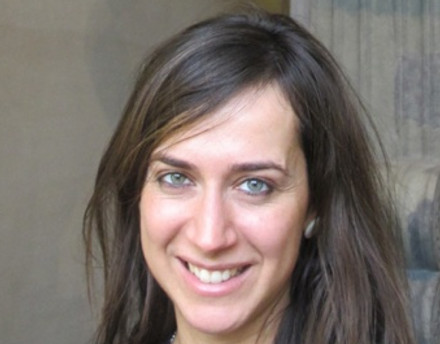
Ford International Professor of the Social Sciences in the Department of Political Science; Director of the Sociotechnical Systems Research Center (SSRC); Associate Director of the Institute for Data, Systems, and Society (IDSS)
Fotini Christia
Keynote Speaker
Talk Title: Using Data to Navigate Conflict Frontlines
Bio: Her research had focused on issues of conflict and cooperation in the Muslim world, and she has conducted fieldwork in Afghanistan, Bosnia, Iraq, Iran, the Palestinian Territories, Syria, and Yemen. She is currently working to bridge the social sciences, data science, and computation by bringing researchers from these disciplines together to address systemic racism across housing, healthcare, policing, and social media. She also has a new line of research that examines how to effectively integrate AI tools in public policy.
Fotini is the author of “Alliance Formation in Civil War” (Cambridge University Press, 2012), which was awarded the Luebbert Award for Best Book in Comparative Politics, the Lepgold Prize for Best Book in International Relations, and a Distinguished Book Award from the International Studies Association. She is co-editor with Graeme Blair (UCLA) and Jeremy Weinstein (Stanford) of “Crime, Insecurity, and Community Policing: Experiments on Building Trust”, forthcoming with Cambridge University Press (2024). Her research has also appeared in Science, Nature Human Behavior, Review of Economic Studies, NeurIPs, Communications Medicine, IEEE Transactions on Network Science and Engineering, American Political Science Review, and Annual Review of Political Science among other journals. Her opinion pieces have been published in Foreign Affairs, The New York Times, The Washington Post, and the Boston Globe among other outlets. Fotini graduated magna cum laude from Columbia University in 2001 with a joint BA in Economics–Operations Research and an MA in International Affairs. She joined the MIT faculty in July 2008 after receiving her PhD in Public Policy from Harvard University that year.

Data Scientist | Statistician
Danisha Baker
Plenary Speaker
Talk Title: Are you sure? An introduction to the Bayesian Causal Framework
Abstract: In everyday scenarios, from policy formulation to scientific inquiry, we frequently grapple with the complexity of causality, especially in environments replete with uncertainty. These settings range from the intricate dynamics of societal systems to the nuanced interactions within biological networks, where traditional predictive models often fall short by neglecting the causal essence. In response to these challenges, the Bayesian Causal Framework emerges as a potent approach that integrates Bayesian inference with causal reasoning. The talk will lay the foundational principles of causal reasoning, highlighting the limitations of traditional predictive models that often overlook causality. It will delve into the core concepts of the Bayesian causal framework, elucidating how Bayesian probability theory is applied to model and infer causal relationships. We then emphasize the importance of thinking beyond mere correlations and predictions, advocating for a causal perspective that seeks to answer questions essential for policymaking, intervention strategies, and scientific discovery. The talk culminates with a principled way to quantify and communicate uncertainty about causal estimates and the challenges in applying Bayesian methods to causal questions, including the selection of appropriate priors and the integration of causal assumptions into the Bayesian framework.
Bio: Danisha Baker, PhD is a Data Scientist at Microsoft where she works on various aspects of the Data Science life cycle leveraging statistical and analytical concepts to recommend strategic improvements across the business. She has spent most of her professional career in the areas of health economics and outcomes research and domestic/global defense. In each of these areas, Danisha developed expertise with Bayesian methods, Statistical process control and Nonparametric statistics. Most recently, Danisha has spent time as a faculty researcher with Morehouse College of Medicine Center for Maternal Health supporting efforts to advance science as it relates to women’s health and building bridges for community engagement and advocacy. Danisha is passionate about equity in public education and supporting women in technology. In her spare time she enjoys CrossFit, shopping, and African American literature.
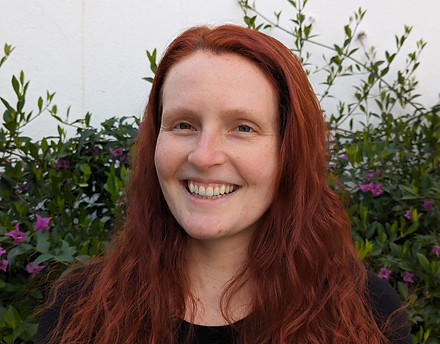
PhD Student in Government at Harvard University
Natalie Ayers
Moderator on: Data Science for Humanitarian Work in Conflict Zones
Natalie Ayers is a PhD student in the Department of Government at Harvard University. Her research interests include developing and applying computational methods, including geospatial analytics, machine learning, and modeling, towards questions of conflict and security. Prior to Harvard, she worked in data consulting before earning her MS in Computational Analysis and Public Policy at the University of Chicago

Principal Software Engineering Manager at Microsoft
Elizabeth Lingg
Plenary Speaker
Talk Title: Copilot: Generative AI and Large Language Models
Abstract: Join us for an exploration of language comprehension and intent detection, where Generative AI, Large Language Models (LLMs), and Copilot converge to redefine the boundaries of machine intelligence. We'll unravel the intricacies of how these technologies collectively decode human expression, understand context, and seamlessly collaborate to create technologies like chatbots and AI assistants used by consumers and enterprise users. From breakthroughs in natural language processing to Copilot's role in enhancing productivity in work and life, this session offers a comprehensive view of the evolving AI landscape, showcasing the synergy between language understanding, intent detection, collaboration, and productivity.
Bio: Elizabeth Lingg is a Principal Software Engineering Manager at Microsoft who is passionate about AI, Machine Learning, and Data Science as well as E2E development of innovative products using Software Engineering, Big Data, and Distributed Systems. She holds a B.S in Computer Science with a Minor in Mathematics from Carnegie Mellon, a B.S. in Policy and Management from Carnegie Mellon, and a M.S. in Computer Science with a Specialization in Artificial Intelligence from Stanford University where she studied under Andrew Ng, founder of DeepLearning.AI and Founding Lead of the Google brain, as her Research Advisor. She currently works on Applied Research on Copilot with a focus on Natural Language Understanding, including Intent Detection and Entity Extraction. Previously, she worked as a Software Engineer, Data Scientist, and Engineering Manager at large companies such as Apple and Oracle as well as startups. She holds a number of patents and publications in the fields of AI and Machine Learning.

Research Associate at BU Center on Forced Displacement
Rana Hussein
Panelist on: Data Science for Humanitarian Work in Conflict Zones
Rana Hussein earned her B.A. in mathematics and computer science at Boston University in 2022. She is currently a research associate at the Center on Forced Displacement at Boston University, an interdisciplinary research center which engages with the topic of forced displacement through research and interventions aiming the improve the lives of those affected by it, including refugees, internally displaced people, and people affected by statelessness. At the Center, she works to apply her background in data analysis to a number of projects aiming to better assess and understand the health of vulnerable and displaced communities as well as contribute to other interdisciplinary collaborations. She has worked on a number of research projects in collaboration with UNICEF where she applied computational modeling techniques to assess and more accurately predict child malnutrition rates in Yemen to guide resource allocation and program planning. Rana also led the planning of a workshop held in collaboration with the National Academies of Sciences, Engineering, and Medicine last spring about incorporating the topic of forced displacement into undergraduate STEM education, which culminated in the development of a biomedical engineering course offered at Boston University (and three other institutions in various STEM fields) which exposes students to the topic and aims to instill in them a desire to engage with it and other similarly complex issues using their engineering education, equips them with the necessary moral and ethical frameworks and encourages them to think in interdisciplinary ways. Currently, she is working on a project in collaboration with a local NGO in Pakistan which aims to assess the health risks of stateless communities in Karachi and the impacts of legal barriers to citizenship on child health and well-being.
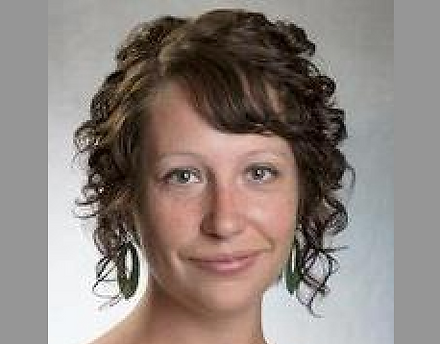
Co-Director, Humanitarian Geoanalytics Research and Education Programs
Erica Nelson
Panelist on: Data Science for Humanitarian Work in Conflict Zones
Erica L Nelson, MD, PhM, MAS is an Emergency Medicine physician who conducts research on the use of geospatial analysis for public health and humanitarian response. After graduating from Trinity College Dublin with a PhM in International Peace Studies and Development, she worked as a researcher and policy consultant on the contextualization of medicine in conflict-affected populations including Nepal, Indonesia, the Balkans, and Jamaica, Ethiopia, and Sudan. She completed her medical training at the University of Washington, residency at the Harvard-Affiliated Emergency Medicine Residency Program, and a MAS in Geospatial Analysis for Public Health at Johns Hopkins University. Currently, she is the co-founder and co-director of the Humanitarian Geospatial Analysis Program at the Harvard Humanitarian Initiative, an Emergency Medicine physician at Mass General Brigham, faculty at Harvard Medical School, and the Deputy Medical Director of Team Rubicon. She has engaged in mixed-methods research regarding, for example, gender-based vulnerability in refugee communities, the health impacts of climate change on vulnerable populations, the design of spatial methods for atrocity prevention, the intersection between climate, conflict, and migration, and the interaction between humanitarian health programs and the socio-political environment.

Master's in Data Science Student at Harvard University
Nishtha Sardana
Moderator on: Responsible AI: Democratization of AI tools & AI for sustainability
Nishtha Sardana is currently pursuing a Master's degree in Data Science at Harvard University. Her research interests lie at the intersection of climate change and machine learning, as well as in the impact of exposure to air pollution. She received her Bachelor's degree in Mathematics and Computing Engineering. Before joining Harvard, Nishtha worked as a Product Manager at Microsoft.

Research Fellow at McKinsey & Company
Daphne Joseph
Panelist on: Data Science for Humanitarian Work in Conflict Zones
Daphne Joseph is a highly accomplished Research Fellow at McKinsey & Company, specializing in human rights and humanitarian issues. In her current role, she provides invaluable support to both public and private sector clients, offering insights and expertise on a diverse range of topics. Daphne's work primarily involves collaborating with global foundations, NGOs, non-profit organizations, and government entities to address pressing societal challenges. One of Daphne's key contributions is her provision of crucial philanthropic and economic development data. She meticulously gathers and analyzes data related to various issues, such as poverty reduction for children, access to education for primary students, and broadband and internet access for immigrants and asylum seekers. By leveraging her expertise in these areas, Daphne helps inform decision-making processes and shape impactful strategies. Daphne's academic background further strengthens her ability to tackle complex social issues. She completed her Master of Arts in Human Rights Studies at Columbia University Graduate School of the Arts and Sciences. During her time at Columbia, she conducted comprehensive mixed-methods research on the effects of temporary policies for Haitian immigrants who sought refuge following the political unrest triggered by the devastating 2010 earthquake. This research allowed her to gain a deep understanding of the challenges faced by displaced individuals and the potential solutions that can be implemented to address their needs effectively. Prior to her graduate studies, Daphne earned a Bachelor of Arts in Sociology from Spelman College. Her undergraduate research focused on the experiences of Black Caribbean immigrants who relocated to the United States due to conflicts in their home countries. Through this research, she shed light on the unique struggles and triumphs of this specific migrant population, contributing to a broader understanding of the complexities surrounding migration and displacement. Daphne's career is driven by her unwavering commitment to comprehending the experiences of Black and Brown migrants escaping conflict zones. She employs a holistic approach, utilizing both qualitative and quantitative data and research methods. By combining these approaches, she is able to gain nuanced insights into the challenges faced by marginalized communities and develop sustainable, long-term solutions. In her pursuit of impactful change, Daphne actively collaborates with stakeholders from the public, private, and philanthropic sectors. By leveraging their collective resources and expertise, she strives to create a lasting positive impact on the lives of vulnerable populations.
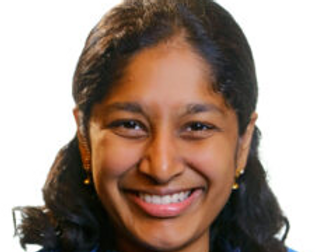
Assistant Professor and the Silverman (1968) Family Career Development Professor at MIT EECS and LIDS.
Priya L. Donti
Panelist on: Responsible AI: Democratization of AI tools & AI for sustainability
Priya Donti is an Assistant Professor and the Silverman (1968) Family Career Development Professor at MIT EECS and LIDS. Her research focuses on machine learning for forecasting, optimization, and control in high-renewables power grids. Methodologically, this entails exploring ways to incorporate relevant physics, hard constraints, and decision-making procedures into deep learning workflows. Priya is also the co-founder and Chair of Climate Change AI, a global nonprofit initiative to catalyze impactful work at the intersection of climate change and machine learning. Priya received her Ph.D. in Computer Science and Public Policy from Carnegie Mellon University, and is a recipient of the MIT Technology Review’s 2021 “35 Innovators Under 35” award, the ACM SIGEnergy Doctoral Dissertation Award, the Siebel Scholarship, the U.S. Department of Energy Computational Science Graduate Fellowship, and best paper awards at ICML (honorable mention), ACM e-Energy (runner-up), PECI, the Duke Energy Data Analytics Symposium, and the NeurIPS workshop on AI for Social Good.
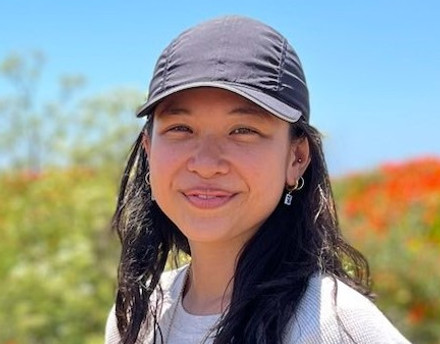
Senior Product Manager working on Responsible AI @ Microsoft
Minsoo Thigpen
Panelist on: Responsible AI: Democratization of AI tools & AI for sustainability
Minsoo is a Senior Product Manager working on Responsible AI tools both in the open source and in Microsoft's Azure AI platform to ensure the next generation of AI-based experiences are built with quality and safety in mind, testable and measurable. Coming from an interdisciplinary background with experience in building ML models and applications, analyzing data, and designing UX, she is always looking to work in the intersection of AI/ML, design, and social sciences to empower data and machine learning practitioners to work ethically and responsibly end-to-end.

Associate Partner with QuantumBlack, AI by McKinsey
Devon Chen
Panelist on: Responsible AI: Democratization of AI tools & AI for sustainability
Devon Chen is an Associate Partner with QuantumBlack, AI by McKinsey. She leads AI, data, and digital consulting engagements primarily in the P&C and Life and Annuities insurance space. Devon began her career as a data scientist at a boutique consultancy, Analytics Operations Engineering, which was acquired by McKinsey. At McKinsey, she serves clients launching or scaling analytics transformations, rethinking their digital and analytics strategies, and exploring applications of new technologies and capabilities. Devon graduated from Princeton with a bachelor’s degree in Operations Research & Financial Engineering.
